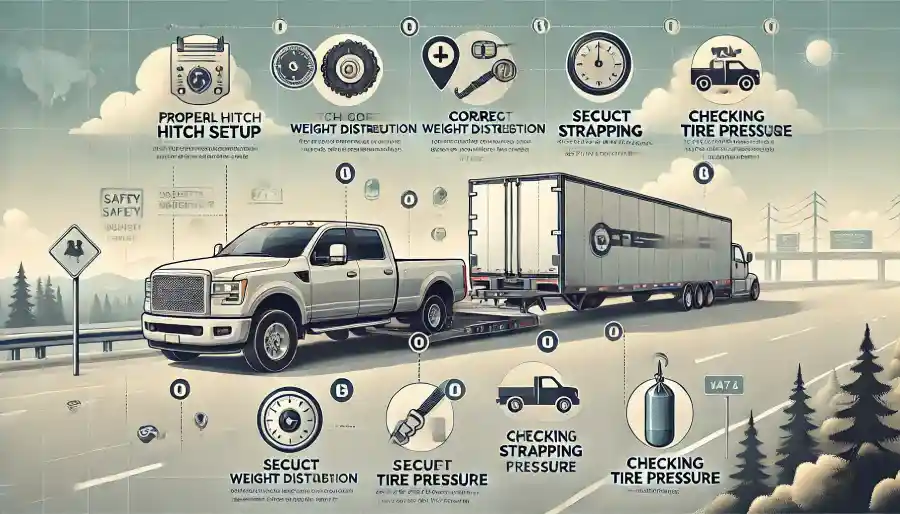Essential Tips for Safely Towing Heavy Loads
Importance of Proper Towing
Towing heavy loads can be challenging, and proper techniques are essential for safety and efficiency. Incorrect towing can result in accidents, damage to your vehicle, and increased wear and tear on components.
One of the most critical aspects of towing is using a weight distribution hitch. This equipment is crucial for spreading the load evenly across your vehicle’s axles, improving handling and stability. Failing to use appropriate towing equipment can lead to issues like trailer sway, which can be dangerous, especially at high speeds. Investing time learning the best towing practices is crucial for anyone who regularly hauls heavy trailers.
Choosing the Right Equipment
Selecting the appropriate towing equipment can significantly improve your towing experience. Knowing the many hitches, choosing the proper hitch ball size, and ensuring your car can support the weight. The right equipment can help distribute the trailer’s weight, enhancing stability and safety during transit.
For example, a hitch not rated for your trailer weight can strain your vehicle, leading to increased wear and potential failure. In addition to the hitch, consider auxiliary equipment like towing mirrors for improved visibility and sway control devices to mitigate trailer sway.
Weight Distribution Hitches 101
Weight distribution hitches are crucial for towing heavy loads. They distribute the trailer’s weight evenly across the axles of the towing vehicle, improving handling, braking, and stability during transit. They apply leverage using spring bars to lift the trailer tongue, and proper installation and adjustment are essential to avoid inadequate distribution and handling issues.
Safety Tips for Towing Heavy Loads
Ensuring safety while towing heavy loads involves several practices that should be routine for any driver:
- Regularly check tire pressure and conditions. While over-inflated tires might not offer enough traction, under-inflated tires might cause blowouts.
- Ensure your trailer is balanced and loaded correctly. Uneven loads can cause swaying and impact braking.
- Use towing mirrors for better visibility. Extended mirrors help you see alongside and behind the trailer, reducing blind spots.
- Practice proper braking techniques to accommodate the increased weight. It includes gradually applying the brakes and avoiding sudden stops whenever possible.
- Install a sway control device if necessary. These tools can be pivotal in maintaining control during high winds or when passing large vehicles.
Maintaining Your Towing Equipment
Regular maintenance of towing equipment is crucial for safety and longevity. It involves lubricating moving parts, checking for wear and tear, and ensuring all components function correctly. Inspections of the hitch and towing components before and after each trip are essential to detect signs of rust, cracks, or damage. Simple maintenance routines save on costly repairs.
Understanding Local Regulations
Towing regulations vary by state or country, requiring knowledge of weight limits, speed limits, and equipment requirements. Understanding local regulations helps comply with legal requirements and avoid fines. Some states mandate trailer brakes or reflective markers, while others require specific equipment. Adherence to these rules prevents penalties and ensures safety in your towing setup.
Common Mistakes to Avoid
Common towing mistakes include overloading the trailer, ignoring sway control, and needing to secure the load properly. Overloading can cause mechanical issues while ignoring sway control can lead to dangerous swaying. Double-check load security to prevent unbalanced trailers and instability during transit. Being aware of these errors can ensure a safe towing experience.
Preparing Your Vehicle for Heavy Towing
Proper vehicle preparation, including checking engine coolant, brakes, and towing capacity, prevents accidents and mechanical failures. Securely fasten all hitch components and ensure proper functioning. Routine maintenance and inspections of vital parts like the suspension and gearbox may also avoid problems while towing large loads.

